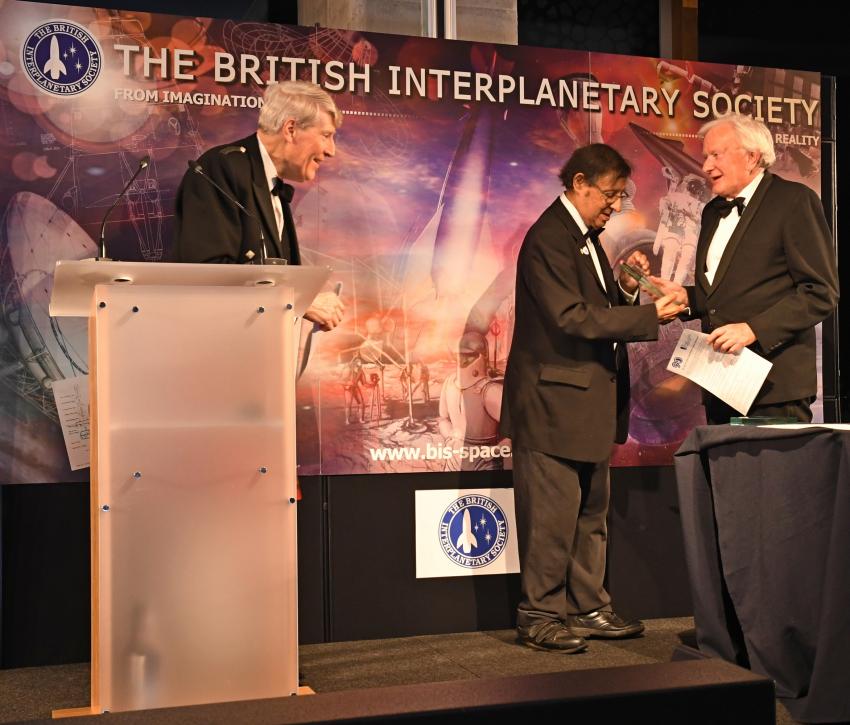The Royal Astronomical Society is delighted that seven Fellows of the Society have won prizes and medals, courtesy of the Sir Arthur Clarke awards (the Arthurs) and the Institute of Physics awards.
Winners of the 2023 Sir Arthur Clarke Awards:
Lifetime Achievement Award
Professor John Zarnecki, former President of the RAS, receives the Lifetime Achievement Award in recognition of more than 40 years at the forefront of space exploration. His many contributions include the earliest X-ray astronomy rockets, the Faint Object Camera for the Hubble Space Telescope, the dust instrument on the Giotto mission to Halley’s Comet, and the Surface Science Package on the Huygens probe, which made the first landing on Saturn’s moon Titan.
Space achievement: Academic Study/Research, Individual
Professor Giovanna Tinetti wins the award for individual academic achievement in space. She made the first conclusive discovery of water in the atmosphere of a planet in orbit around another star, and her career is centred on exoplanets, planetary science and atmospheric science. She is now leading work on the payload for the European Space Agency Ariel mission, which will be the first dedicated to the exploration of exoplanet atmosphere, and is expected to launch in 2029.
Winners of the 2023 Institute of Physics Awards
Isaac Newton Medal and Prize
Prof. James Binney wins the Isaac Newton Medal and Prize for advancing the science of stellar dynamics and using strong physical intuition to widen and deepen our understanding of how galaxies are structured and formed.
Gold Medals
Prof. Belinda Wilkes receives the Richard Glazebrook Medal and Prize for outstanding leadership as Director of the Chandra X-ray Center, supporting the operation, exploitation and public relations of NASA's premier X-ray observatory, and significant contributions to our understanding of quasars.
Prof. Andy Newsam (for the National Schools Observatory) receives the William Thomson, Lord Kelvin Medal and Prize for an outstanding contribution to inspiring young people and teachers to succeed in their STEM journey, making the universe accessible to everyone, empowering people to know more and do more.
Silver Subject Medal
Prof. Louise Harra receives the Silver Subject Cecilia Payne-Gaposchkin Medal and Prize for pioneering contributions to the development of extreme ultraviolet imaging and spectroscopy instrumentation for solar space missions and its application to further our understanding of dynamic activity on the Sun.
Philips Award
Dr June McCombie MBE receives the Phillips Award for pioneering and sustained contributions to diversity and inclusion within the physics and broader STEM community.
Professor Mike Edmunds, the President of the Royal Astronomical Society, said:
"It is a great delight to see so many Fellows of the Society - most of them colleagues I have known and admired for years - winning these prestigious awards and medals. I am proud that they have been honoured for making important contributions, not only to our understanding of the Universe, both near and far, but also for inspiring the next generation of astronomers and space scientists. My heartfelt congratulations to them all! "


